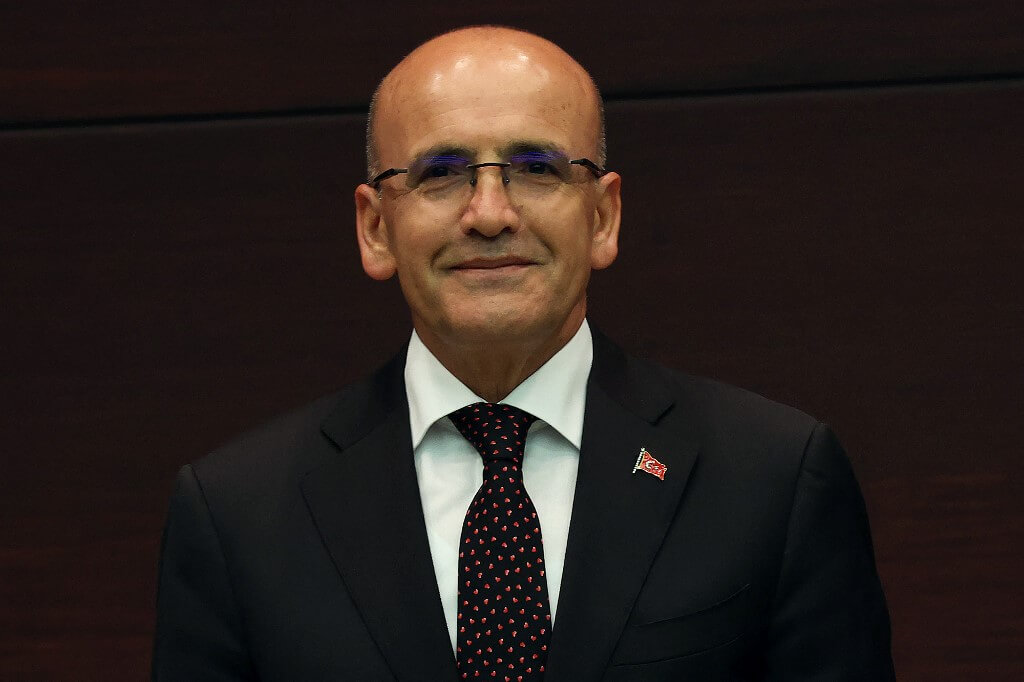Turkish Finance Minister Mehmet Şimşek has said the country’s skyrocketing inflation, which stands around 70 percent, will fall to 30 percent by the end of the year thanks to a well-functioning economic program aimed at lowering inflation, the state-run Anadolu news agency reported.
Şimşek, who was speaking at an event in Ankara on Wednesday, said the government’s disinflation policy aimed at reducing inflation to single digits is being implemented with success and that the monthly inflation figures have begun to overlap with the government’s inflation goals.
Turkey’s rate of annual inflation rose to 69.8 percent in April despite interest rate hikes aimed at taming soaring consumer prices, according to data from the Turkish Statistical Institute (TurkStat). But TurkStat’s inflation figures are challenged by ENAG, a group of independent economists.
ENAG said their own calculations put the year-on-year figure at almost 125 percent in April.
Although Şimşek painted an optimistic picture for yearend inflation, he said an upward trend in annual inflation will continue in May and peak in this month as forecast in the central bank’s inflation report, adding that it should come as no surprise.
According to the minister, inflation will begin to rapidly fall in the summer months thanks to a series of measures the government has taken and will drop to 30 percent by the end of the year.
The central bank began to hike its key rate in June 2023 after Şimşek took over the finance ministry, gradually raising it from 8.5 percent to 50 percent after President Recep Tayyip Erdoğan loosened his objections to such monetary policies.
The central bank decided in late April to keep borrowing costs steady but warned it could raise them again if inflation deteriorates.
Şimşek said the government woud aim to reduce inflation to 10 percent in 2025 and then to single digits in 2026.
Turkey’s official annual inflation rate peaked at 85 percent in October 2022.
Erdoğan long blamed inflation on high interest rates, even though it is the conventional policy at central banks worldwide to raise borrowing costs in order to lower inflation.
Faced with a financial crisis characterized by a rising cost of living and a decline in foreign investment, Erdoğan recalibrated his approach after his re-election in May.
Since last year’s elections, which gave Erdoğan another five years in office, Turkey has taken more aggressive steps to tighten monetary policy than expected, which has helped to lower inflation expectations and reduce external liquidity risks.
Şimşek, who was appointed in June to help lead the policy U-turn, said Turkey has no choice other than to return to “rational ground,” adding that a rules-based, predictable Turkish economy will be the key to achieving prosperity.
Turkey’s high inflation, which stood over 65 percent in February, and the continued loss in value of the lira, which significantly decreased Turks’ purchasing power, have been shown by observers as being among the main reasons behind the loss of support for Erdoğan’s ruling Justice and Development Party (AKP) in the March 31 local elections.
The results of the elections produced surprising results for the AKP, while the main opposition Republican People’s Party (CHP) emerged as the country’s leading party for the first time in decades, receiving 37.7 percent of the vote. The AKP’s nationwide support stood at only 35.4 percent.
